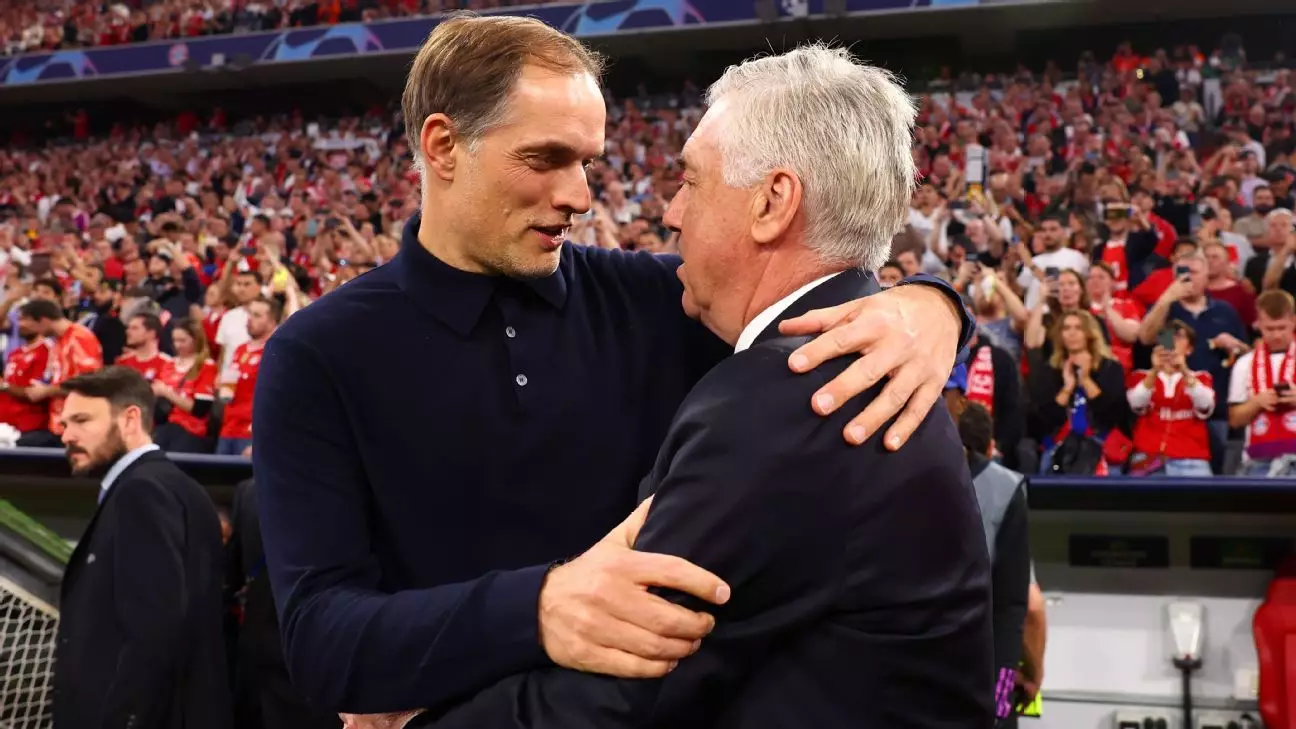In the upcoming Champions League semifinal match between Real Madrid and Bayern Munich, the spotlight will not only be on the team tactics and star players but also on the contrasting coaching styles of Carlo Ancelotti and Thomas Tuchel. While both coaches have proven their worth, their approaches to leadership and communication differ drastically.
Carlo Ancelotti is known for his calm demeanor and quiet leadership style. He believes in winning the hearts and minds of his players to deliver his ideas effectively. Ancelotti’s approach is focused on building trust, making decisions calmly, and using influence and persuasion rather than fear. His book on sports management, titled “Quiet Leadership: Winning Hearts and Minds and Matches,” emphasizes the importance of including players in problem-solving and encouraging them to be active participants in finding solutions.
On the other hand, Thomas Tuchel is described as “fury in a bottle.” His coaching style oscillates between encouragement and excoriation, often displaying explosive anger on the touchline. Tuchel’s tactical brilliance is unquestionable, and he is known for his resourcefulness and alertness in devising strategic plans. However, his abrasive communication style and public criticism of players have raised concerns among his squad and critics.
Tuchel’s confrontational approach to communication, both on and off the field, has sparked controversy. His tendency to publicly criticize players and use harsh language to convey his message has led to mixed reactions. While some argue that such directness and intensity are necessary for elite performance, others, like former coach Juan Carlos Osorio, believe in a more unified and constructive approach to team management.
Ancelotti’s emphasis on “player whispering” and creating an atmosphere of trust and respect stands in contrast to Tuchel’s “tough love” approach. While Tuchel’s uncompromising attitude may yield immediate results, it can also erode player morale and trust over time. Ancelotti’s track record of success across top European leagues and his ability to connect with players on a deeper level showcase the power of quiet leadership and mutual respect in achieving long-term excellence.
As the Champions League semifinal approaches, the clash of coaching philosophies between Ancelotti and Tuchel will be closely watched. While Tuchel’s tactical acumen may give him an edge on the field, Ancelotti’s proven track record and quiet leadership style highlight the importance of balancing strategy with empathy and communication. Regardless of the outcome, both coaches have valuable lessons to learn from each other’s strengths and weaknesses.
The coaching duel between Ancelotti and Tuchel serves as a reminder of the diverse approaches to leadership in the world of football. While intensity and aggression have their place on the field, the enduring impact of trust, respect, and effective communication cannot be overlooked. As the semifinal unfolds, spectators will witness not only a battle of tactics and skills but also a clash of coaching ideologies that may shape the future of elite football management.

Leave a Reply